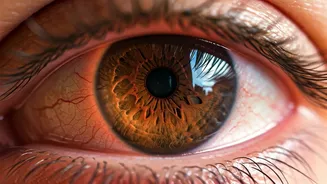Increased Vulnerability Explained
The elderly population faces heightened risks due to several biological changes that occur with age. As the body ages, organs and bodily systems gradually
lose their efficiency, making individuals more vulnerable to illnesses and injuries. The immune system, for example, becomes less effective at fighting off infections, increasing the chances of contracting diseases. Furthermore, the ability to heal and recover from injuries slows down. This combination of factors puts older adults at a higher risk of developing a variety of health problems, from chronic conditions to acute illnesses. Moreover, the prevalence of multiple health issues at once, or comorbidities, is higher in the elderly, making their care more complex and challenging. The aging process also leads to physical frailty, with reduced muscle mass, bone density, and balance, increasing the likelihood of falls and related injuries. Additionally, the cognitive function may decline, potentially affecting their ability to manage their health effectively. Understanding these biological changes is critical for healthcare providers, caregivers, and family members to ensure they are providing the best possible care and support.
Eye Health Challenges
Eye problems are a significant concern among the elderly, especially after events like Diwali, where exposure to pollutants and smoke can exacerbate existing conditions or trigger new ones. Age-related macular degeneration (AMD), cataracts, and glaucoma are common eye diseases that become more prevalent with age. AMD affects central vision, while cataracts cause clouding of the lens, and glaucoma can lead to vision loss due to optic nerve damage. Dry eye syndrome is another frequent issue, causing discomfort and potentially affecting vision. Furthermore, pre-existing eye conditions can be worsened by the increased air pollution during Diwali celebrations. Exposure to smoke and irritants can lead to inflammation and eye irritation, making the elderly more susceptible to complications. Additionally, those who wear contact lenses are at a greater risk of eye infections because of the presence of airborne pollutants. Early detection and treatment are crucial to prevent or slow down vision loss. Regular eye check-ups are essential for monitoring eye health and addressing any problems promptly. Furthermore, wearing protective eyewear and avoiding prolonged exposure to irritants during high-pollution periods are important preventive measures.
Protective Strategies, Lifestyle
To mitigate health risks, the elderly should adopt several protective strategies. Regular health check-ups and screenings are vital for early detection of potential health problems. Maintaining a healthy lifestyle, including a balanced diet and regular exercise, can help boost the immune system and overall health. A diet rich in fruits, vegetables, and whole grains provides essential nutrients and antioxidants, contributing to overall health. Moderate physical activity can improve strength, balance, and cognitive function. Adequate sleep and stress management are also important for maintaining physical and mental well-being. Ensuring a safe living environment can reduce the risk of falls and injuries. Furthermore, social engagement and staying mentally active can help prevent cognitive decline and promote a sense of purpose. Additionally, vaccination against seasonal illnesses, such as the flu, can help prevent complications. Careful medication management, avoiding smoking, and limiting alcohol consumption are also crucial. Making sure the elderly stay hydrated, especially during the hot seasons, is also essential for their well-being.
Diwali Precautions for Eyes
During Diwali, specific precautions are crucial to protect the elderly's eye health. Limiting exposure to smoke and air pollution is the most important step. Staying indoors during peak pollution times, particularly during and after firework displays, can minimize exposure. Wearing protective eyewear, such as glasses or sunglasses, can shield the eyes from irritants. Washing the eyes with clean water if any irritants enter them helps remove particles and reduce irritation. Avoiding rubbing the eyes, which can worsen irritation or potentially introduce infection, is also advised. Ensuring adequate indoor ventilation can help reduce the concentration of pollutants inside the home. Seeking prompt medical attention if eye irritation persists or vision changes occur is crucial. Following these precautions during Diwali can protect the elderly's eye health and reduce their risk of complications. Moreover, educating the elderly and providing them with the necessary resources and information to protect their eye health will enable them to celebrate the festival safely and healthily.













